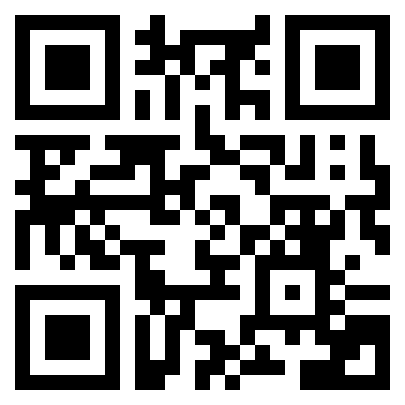Ethical Job Work Design

Question: Ethical Job and Work Design
Details Of Task:
Within the context of the board topic area covered in assessment task 1, select one HRM activity covered in the unit weeks 5 – 9 and analyze the literature on this topic.
a.) Provide a discussion about why the focus you have selected is important for HRM research and practice;
b.) Identify key issues that emerge out of the literature;
c.) Identify gaps in the literature and possible future directions for research in the area; and
d.) Submit an essay of your analysis.
Format:- The written paper is to be in essay format (no headings or subheadings). Limit the content on your broad topic area. If you simply repeat sections of your first assignment you will not do well in this second assignment. Assessment task 2 expects you to build on the knowledge and understanding acquired in assessment task 1. The focus of 14 Assessment Requirements Assessment task 2 is your selected HRM activity. The criteria for assessing the essay are presented below. These criteria provide clear guidance on how your work will be assessed. It is recommended that you refer to the criteria when preparing your essay.
Word limit:- 2,000 words (excluding references)
Weighting/Value:- 30% Weighting/Value.
Presentation requirements: Essay format
Flexible Rates Compatible With Everyone’s Budget
Hire a Professional Essay & Assignment Writer for completing your Academic Assessments
ASSESSMENT TASK 3: INDIVIDUAL MAJOR ESSAY
(a) Identification and delineation of topic area:
♦ Clear statement of purpose of the literature review.
♦ Relevance and importance of chosen topic area.
♦ Definition of key terms.
♦ Clear statement of limits of the review.
(b) Analysis of relevant literature:
♦ Inclusion of scholarly literature.
♦ Critical synthesis & evaluation of material included in review.
♦ Discussion of HR’s role.
♦ Identification of key issues and gaps in research.
♦ Identification of future issues and research directions.
(c) Use of References:
♦ Evidence of wide ranging reading indicated by an extensive reference section and text citation of references.
In this assignment you must draw on at least 12 academic references plus at least 3 practitioner or professional references.
♦ References cited are relevant to the chosen topic.
♦ Paper conveys understanding of the references and relevance to the area under review.
♦ Correct referencing style. The required referencing style is APA (6th edition).
(d) Technical Issues:
♦ Clear structure.
♦ Clear presentation and organization.
♦ Correct grammar, punctuation & spelling.
Answer: Ethical Job and Work Design
Introduction
In existing time period, the scope of human resource management have become quite extended as different crucial organizational functions such as job work designing have become crucial functions of Human resource managers. While planning of human resources within an organization, the designing of jobs for individuals of the organization is an essential and crucial task as it directly enhances the productivity and efficiency of the entire organization (Treviño Hartman & Brown, 2000).
Effective job designing involves the allocation of the tasks to the most eligible individual within the organization so that tasks can be accomplished in the most effective manner (Rao, 2008). In regard to this, the presented discussion in the essay aimed to reflect some critical HRM related issues in the ethical job and work designing procedures adopted by an organization. For the essay, a thesis statement can be presented as below:
“Whether HRM can play an effective role in the ethical job and work designing for employees”
Buy high-quality essays & assignment writing as per particular university, high school or college by UK, USA & Australian Writers
Rationale behind the selection of the topic
The issue related with ethical job and work deigning has been emerged quite significantly in modern business organizations. Increasing competition within the existing job market has led to decrease the quality and rationality in the job and work designing. Job designing ethics states the ethical selection of elements of job and work responsibilities according to the qualification required and remuneration paid. However, in existing time period business organizations are engaging in the practices of deceiving candidates by attractive but fake job designs. The job designs offered by organizations are generally quite customized and unrealistic, which leads to disguise the career aspirants (Searle & Skinner, 2011).
This practice followed by the company can be considered quite unethical. In this regard, the exploration of the theoretical and conceptual findings has elaborated ethical job and work designing will be proved quite helpful for different business organizations. The findings of the work will present some crucial measures with the help of which, organization can be able to redesign its different HR practices and framework for having some effective and efficient Job and work designing the most ethical manner (Sims, 2002). In addition to this, the findings of the work will also be proved quite effective and rational from the perspective of future research scholars who are aimed to undertake thorough research on some similar topics and areas. Students from the research field can identify some of the crucial relationship between ethical job and work designing, and HRM practices of the organization, which can be proved helpful for the organization in the long run.
Key issues emerged out of literatures
In relation to the role of human resource management in work design/or job design, several scholars have made significant research. In this context, the review of different literatures reflects that there are several key issues have emerged. In relation to this Boselie, Dietz & Boon (2005) have explored that job design is the process in which arrangement of the work is done in such a way that the degree of job dissatisfaction can be reduced to a significant level (Boselie, Dietz & Boon, 2005). The main objective of the job design or work design for the human resource managers is this that the performance of the employees for the related job remains efficient and flexible. The main key issue that have been emerged out of this literature is that there are several areas that need to be considered by the human resource managers during the process of job/work design such as staffing, compensation, benefits provided to the employees, flexibility of the job, etc. The consideration of all these aspects simultaneously and in a balanced way is a key functional area that researchers have highlighted as the main critical issue in the field of human resource management.
In the same context Gerhart (2005) have explored that in the job designing the content of the job is also an important aspect. In this context it has been explored under the literature that in the job design, motivational factors should be given value to a good level (Gerhart, 2005). In addition to this, the content of the job should be interesting enough in order to keep the employees positively engaged in it. In addition to this, ethical aspects are also required to be included in the job design or work design. In this relation, the main key issue emerged from the literature is that for doing a job, several prerequisite skills are required in the individual selected for the job? In this relation, it has been explored in the literature that in the job designing there should be a clear specification of the skills required in an individual for the related job as well as the specifications of the job that are favourable for employees to make them attract to join that particular job task. In the job designing process, the key issue that has been highlighted under the literature is that flexible time scheduling is the common core of the job design. This is an ethical requirement to make a job ethical one to keep it flexible for employees in term of working hours. This is because; the employees need to make a clear balance between their work life and personal life. This means that the job design done in the compliance of the philosophy of work life balance (Guest, 2001).
In addition to this, Piccolo et al (2010) have also specified that for the purpose acquiring some effective talent within the organization, manipulation in the job and work designing can be seen as the most common practices. However, the manipulation can be considered as unethical as with the help of this mean, organization can deceive the young talent, which can be used somewhere else. From the perspective of the Human resource management, acquisition of human resource can be considered as an essential phenomenon. However after the acquisition of HRM also, the assignment of job responsibilities and duties to the employee whose competencies match with the nature of the job can be considered essential task. In the views of the authors, In the job allocation and work designing, HR manager is required to play an effective and fair role, so that the accomplishment of different organizational functions can done in the most proper manner (Piccolo et al, 2010).
In addition to this, Zhu, May & Avolio (2004) have also implied that job designing must be done on the basis of the competencies and qualifications of the aspirant. For this purpose, intensive and deep knowledge of the candidate’s profile can be considered essential which can only be accomplished by a talented Human Resource manager.
This has also been explored in the literature, that in the HRM the core key issue related to job design is that the prime focus area of the job design should be the performance and thus it should have different variables that mediate high performance of the employees involved in that job. The main variable in this context is that the job should have motivation to perform it in terms of promotion, motivation and satisfaction. Secondly, the job should have positive influence on the attitude of the employees in context of their satisfaction, motivation and commitment. Lastly, the job design should consider the different opportunities that need to be given to the employees such as involvement of the employees in the task, communication behaviour of the employees and participation of the employees in the job (Katou, 2008).

Gaps in the Literature
The above section of the essay has reflected that there are different literatures, which has specified the role and significance of effective job and work designing in the long term success of the organization. However, the study of various crucial literatures has indicating that still there are some critical gaps in the findings of existing literature on the context. For example, literatures have focused on Job and work designing measures and practices within an organization. Information related to principles and concepts of job designing have also been projected in different available academic literatures. However, still the perspective of the ethics in job designing and work determination is still quite under researched. There is a gap in the research work in this context. There are few literatures which deliver information related to ethical viability of Job designing functions of the organization. Owing to this reason, for researchers and scholars in the field are sometimes requiring to face issues related to knowledge gap in this field of research.
In addition to this another gap identified in the related literatures is related to the projection of HRM tools for the determination of some effective and fair element of a job designed for a specific employee. There are various literatures that have reflected the strategic significance of HRM for a business organization and different operation related activities. In context to this, there is a gap identified in the findings of literatures. There is a lack of intensive amount of literatures on the specific role of ethical practices in Job designing and work allocation for a HR manager within the organization. From the strategic perspective, allocation of the task to the right individual can be reflected as one of the major and crucial tasks as it ensures the effective completion and implication of the task. In this regard, there is no enough information found on this topic in literatures, which can be considered as a knowledge gap within the existing literature.
These are some of the crucial gaps in the literatures in existing time period, which are needed to be filled in the existing research work with the help of empirical and evidence base study done on the subject.

Future Research Direction
In the near future, the area of the job design will become more advanced to make it improved enough to improve overall organizational performance. In this context, it is essential to have inclusion of some more diverse aspects in the future research in order to support HR managers to work more effectively. In future research, there should be prime focus on the HRM policies in term of determining job design in such a way the discretionary behaviour of the employees is shaped effectively. In this context, it is also recommended in relation to the future research that extensive research should be done on theoretical aspects to make human resource management research more sensible and evidence based (Kramar & Syed, 2012).
In addition to this, in the future research some measures should be explored in order to find out the ways through which the performance of the each job can be measures in relation to its objective for which it is designed. With such exploration, some new ways would also be explored in the literature to help HR managers to find new dimensions to improvise their job design practices. In addition to this, in the future research, ethical aspects should be given value to a greater extent in order to make employees feel highly satisfied at the workplace. In the organizations, the human resource management practices should have inclusion of innovation strategy in order to render high rewards to the employees for their skills and creative work.
The innovation strategy related research should be done in future in terms of employee participation and having satisfaction to the sophisticated labor force (Lopez, Peon, & Ordas, 2005). The future research should also be directed in relation to the HRM outcomes that can be gained through making work design improved in relation to inclusion of different motivational, ethical and attitudinal variables. With exploring future research on all these aspects, the future research will be provided a good direction.
Conclusion
Job/work design is an important functional area in the human resource practices. The essay framed on this topic has explored the importance of this topic for the research purpose. There are several gaps in the existing literature in relation to the selected topic. In addition to this, the literature has also explored some key issues in relation to job design that are demonstrated above. In order to bridge the gap in the existing literature and overcoming the emerged issues in the literatures, specific future directions have been provided for conducting literature review in the future research.

Reference
Boselie, P., Dietz, G., & Boon, C. (2005). Commonalities and Contradiction in HRM and Performance Research. Human Resource Management Journal, 15: 67-94.
Gerhart, B. (2005). Human Resources and Business Performance. Findings, unanswered questions, and an alternative approach. Management Revue, 16: 117-185.
Guest, D. E. (2001). Human Resource Management: When research confronts theory. International Journal of Human Resource Management, 12: 1092-1106.
Katou, A, A. (2008). Measuring the Impact of HRM on Organisational Performance. Journal of Industrial Engineering and Management, 1(2): 119-142.
Kramar, R., & Syed, J. (2012). Human Resource Management in a global context: a critical approach. (1st ed.). Palgrave MacMillan.
Lopez, S. P., Peon, J. J. M., & Ordas, C. J. V. (2005). Human Resource Practices, Organisational Learning and Business Performance. Human Resource Development International, 8: 147-164.
Piccolo, R.F., Greenbaum, R., Den Hartog, D.N. & Folger, R. (2010). The relationship between ethical leadership and core job characteristics. Journal of Organizational Behaviour 31: 259–278.
Rao, P. (2008). Comprehensive HRM. Excel Books
Searle, R. & Skinner, D. (2011). Trust and Human Resource Management. Edward Elgar Publishing.
Sims, R.R. (2002). Organizational Success Through Effective Human Resources Management. Greenwood Publishing Group.
Treviño, L. Hartman, L. & Brown, M. (2000). Moral Person and Moral Manager: How Executives Develop a Reputation for Ethical Leadership. California Management Review, 42(4): 128‐142.
Zhu, W., May, D.R., & Avolio, B.J. (2004). The Impact of Ethical Leadership Behavior on Employee Outcomes: The Roles of .psychological Empowerment and Authenticity. Journal of Leadership & Organizational Studies, 11(1): 16-26.


